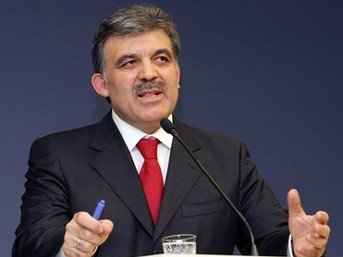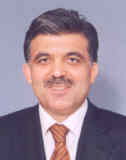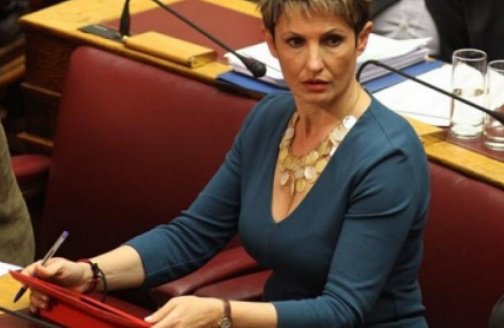Reactions to candidacy
Prime Minister Recep Tayyip Erdogan confirmed that the AKP was supporting Gül's candidacy.
Gül has requested meetings with the leaders of the opposition parties. The Republican People's Party (CHP ) and the Democratic Left Party (DSP ) reacted strongly to Gül's announcement. The Nationalist Movement Party (MHP ) will field its own candidate. The pro-Kurdish Democratic Society Party (DTP ) has greeted Gül's candidacy with equinamity.
So far, only the MHP has arranged for a meeting with Abdullah Gül today (14 August) at 11.30 am. The CHP will decide whether or not to grant an appointment after the party meets for consultation today.
Meanwhile, Erdogan is expected to meet with Ahmet Necdet Sezer at the presidential residence on Thursday in order to present the new cabinet.
Baykal refuses support
CHP chairperson Deniz Baykal said, "We cannot be expected to support this candidate after the Prime Minister had said that a candidate would be decided on together with the opposition."
Speaking to Fikret Bila of the "Milliyet" newspaper, he added that the Turkish Armed Forces feared a threat to the laicism of the Republic and to national territorial integrity.
Controversial candidacy
Gül was first declared the presidential candidate of the AKP on 24 April, just days before the scheduled elections in parliament. The CHP had boycotted the ballot, thus ensuring that there was not a quorum in parliament.
The General Staff had expressed its displeasure at Gül's candidacy at a press briefing on 12 April and in the infamous "e-memorandum" in the night of 27 April, following the boycotted elections.
As a result of the crisis, the general elections were put forward. The AKP added to its votes, and Gül has since hinted at his renewed candidacy.
Who is Abdullah Gül?
Born in Kayseri, central Anatolia, in 1950, he graduated from Istanbul University in economics in 1971. He received his doctorate from the same university in 1983. He has joined Masters and doctoral programmes in Exeter and London. From 1980 to 1983 he worked on the foundation of the industrial engineering faculty at Sakarya University and lectured there.
From 1983 to 1991 he worked as an economic expert for the Jeddah Islam Development Bank.
In 1991 he became associate professor in international economics. In the same year, he became the vice chairperson of the Welfare Party responsible for foreign affairs.
In 1995 he was reelected MP in Kayseri for the Welfare Party and continued his duty in the commission for foreign affairs.
From 1996 to 1997 he was a state minister and government speaker. He was elected into parliament again in 1999, this time as an MP for the Virtue Party.
From 1992 to 2001 he was a member of the Parliamentary Assembly of the Council of Europe. He worked in the councils for culture, regulations, and political and economic development. He earned the "Pro-merito" medal and perpetual honorary membership of the council for his work.
In 2001, he was a founding member of the AKP. He has taken on the duties of party vice chairperson responsible for political and legal questions and the membership in the NATO Parliamentary Assembly.
On 16 November, he became Prime Minister. He then left that position to Erdogan and became Minister of Foreign Affairs and Deputy Prime Minister on 14 March 2003.
He is married and has three children. (NZ/AG)










